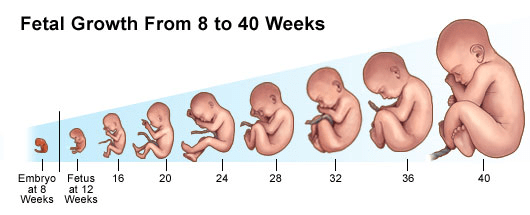Every woman’s pregnancy experience is unique, but the second trimester often brings a welcome relief compared to the challenges of the first trimester. You will likely notice a decrease in nausea and fatigue, making this a more comfortable period for many expectant mothers. As you progress through the second trimester, your body will undergo noticeable changes, including the growth of your baby bump. By the time you reach the third trimester, you can anticipate feeling your baby’s movements and kicks, a remarkable experience.

Note: This article is the 2nd part of 3 part series on pregnancy milestones. Also read
i) First Trimester Pregnancy Milestones: A Comprehensive Guide
ii) Third Trimester Pregnancy Milestones: A Comprehensive Guide
Common Symptoms
While no two pregnancies are identical, some typical symptoms you may encounter during the second trimester include:
Carpal Tunnel Syndrome: This condition can lead to numbness, tingling, or weakness in your hands.
Growing belly and breasts: As your uterus expands to make room for the baby, your belly grows. Your breasts will also gradually continue to increase in size.
Linea Nigra: A line may appear on your skin, running from your belly button to your pubic hairline.
Melasma: You might notice patches of darker skin on your face.
Lower Back and Pelvic Pain: These discomforts may become more pronounced.
Darkening Areola: Changes in the color of your areolas.
Stretch Marks: These may develop along your breasts, abdomen, buttocks, and thighs.
Healthy Lifestyle during Pregnancy
Incorporate these practices into your second trimester and throughout your pregnancy for a healthier experience:
- Exercise: Maintain a regular exercise routine; ensure you can hold a conversation while working out. Always consult your healthcare provider regarding pregnancy-safe exercises.
Read Health Benefits of Daily Physical Activity during Pregnancy
- Nutrition: Consume a variety of foods to meet your energy, protein, vitamin, and mineral needs.
Read Healthy Weight Gain During Pregnancy
Pregnancy can be a wonderful and exciting time, but it is also normal to occasionally experience anxiety or low mood. Sometimes, one or both parents experience difficult emotions during pregnancy, such as being worried about the birth or about coping as a parent.
If you find yourself concerned about experiencing anxiety, feelings of low mood, or depression, consult doctor, obstetrician or midwife.
Baby’s Growth During the Second Trimester
Throughout the second trimester, your baby’s development becomes more intricate. Key developments include:
- Bones hardening
- Thickening of the skin
- Formation of toenails
- Development of the nervous system
- Progress in hearing
- Fully formed motor control brain region
- Ability to open and close eyelids
- Stronger kicks
- Functioning digestive system
- Fully formed lungs
Growth Metrics
Fetal growth can vary, but by the end of the second trimester, your baby should measure about 35 cm (14 inches) and weigh between 1 to 2 kg.

Regular Antenatal Visits
Regular antenatal appointments are important for maintaining your health and ensuring the well-being of your baby. The frequency of these visits depends on your specific circumstances. Typically, most individuals will have appointments every 4 to 6 weeks during the second trimester, and the frequency may increase as you approach the later stages of pregnancy.
During your second-trimester antenatal visits, your healthcare provider, whether it is a doctor or midwife, will perform the following checks:
- Monitoring your blood pressure.
- Evaluating your hands and feet for any signs of swelling.
- Tracking your weight gain.
- Analyzing your urine for any abnormalities.
Additionally, your healthcare provider will discuss any recommended blood tests for this stage of pregnancy. For most expectant individuals, this includes undergoing an oral glucose tolerance test between 24 to 28 weeks to screen for gestational diabetes.
Congratulations on reaching the end of the second trimester of your pregnancy! During the second trimester mothers can experience the joy of feeling their baby’s movements and kicks, strengthening the bond with their growing child.
This phase also witnesses remarkable developments in the baby’s growth, with organs and systems maturing, bringing both excitement and anticipation for the arrival of the new family member. It is a time for expectant mothers to cherish their evolving pregnancy experience while continuing to prioritize their well-being and the health of their developing baby.
As you continue your pregnancy, it is important to stay connected with your healthcare provider. Remember, every pregnancy is unique, so do not hesitate to seek professional advice whenever you have questions or concerns.